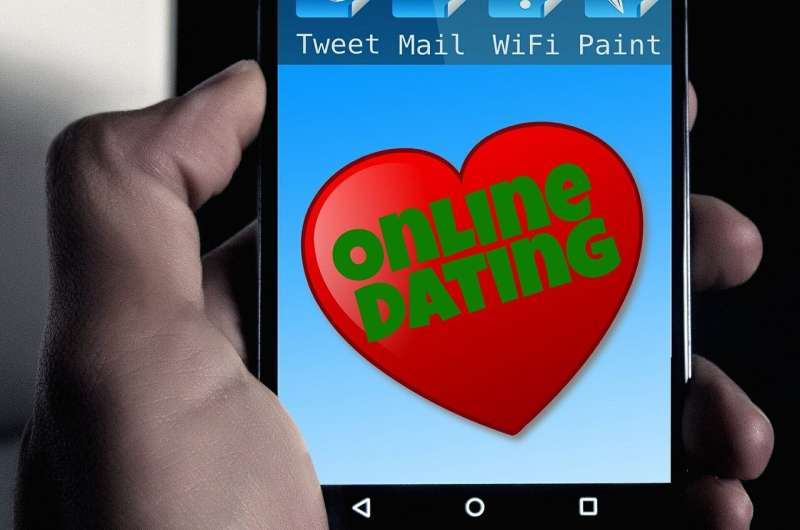It's time to stop viewing dating apps as a risk, experts report

Australians using online dating apps understand the risks involved and are sharing new skills for pursuing safe interactions, an Australia-wide report has found.
The "Safety, Risk and Wellbeing on Dating Apps' Australian Research Council Linkage project—a Swinburne-led collaboration between Family Planning NSW, community health organization ACON Health and the University of Sydney—surveyed app users across Australia.
"Mainstream consensus on dating apps often associates them with "risky" sex, harassment and bad experiences," says report lead author Professor Kath Albury.
"This project has shown that while app users do recognize risks associated with dating and app use, they also have a range of strategies to help them feel safer and manage their wellbeing."
Survey and interview data will be shared with sexual health professionals to help support communities in regards to their health. Professor Albury explains these insights give a greater understanding of digital culture.
"App users also have expertise and insights to offer health service providers and educators who want to gain a better understanding of digital culture."
Key findings from the report
Surveying and interviewing a wide range of Australians of all sexual identities and genders, the report found:
The most popular apps in Australia are:
- Tinder—among LGBTQ+ women, straight women and men
- Grindr—among LGBTQ+ men
- OK Cupid—among non-binary people
- Bumble—among straight women.
The future of health promotion
Manager Health Promotion at Family Planning NSW, Rob Hardy, says the project provides insights that will inform the future of health promotion.
"The digital sphere is a typical and ordinary dimension of young people's learning, seeking and experiences of sexual relationships whether through social media, pornography, sexting or dating apps. This research provides a deeper understanding of how dating apps are part of their lives and how future health promotion programs can effectively target information and resources to encourage behaviors that promote health, wellbeing and safety," he says.
ACON's Associate Director Policy, Strategy and Research, Brent Mackie, confirms that the results of the report will influence ACON's work going forward.
"ACON is incredibly pleased to be involved in this research, which explores how members of our community develop strategies for safety in spaces, which can be both rewarding but also problematic," he says.
"We are thrilled that the project has had such a focus on finding out about the needs of sexuality and gender diverse people who are often overlooked in research about relationships. We are sure the results will greatly influence how we work across our projects."
Key recommendations
The report issued three main recommendations for sexual health professionals:
- Develop an understanding of dating app use as an ordinary and everyday element of contemporary sexuality, dating and relationships—especially other social media not conventionally seen as designed for hooking up
- Recognise and address the ways that experiences of feeling safer or less safe when using apps are linked to broader socio-cultural experiences of identity, sexuality and gender
- Adapt and expand existing policy and practice frameworks relating to sexual health to include user-centered definitions of "safe sex." Both policy and practice should acknowledge the ways friendship and sexual intimacy are interwoven with each other, and the role that hook-up apps and social media play in weaving them together
Provided by Swinburne University of Technology




















